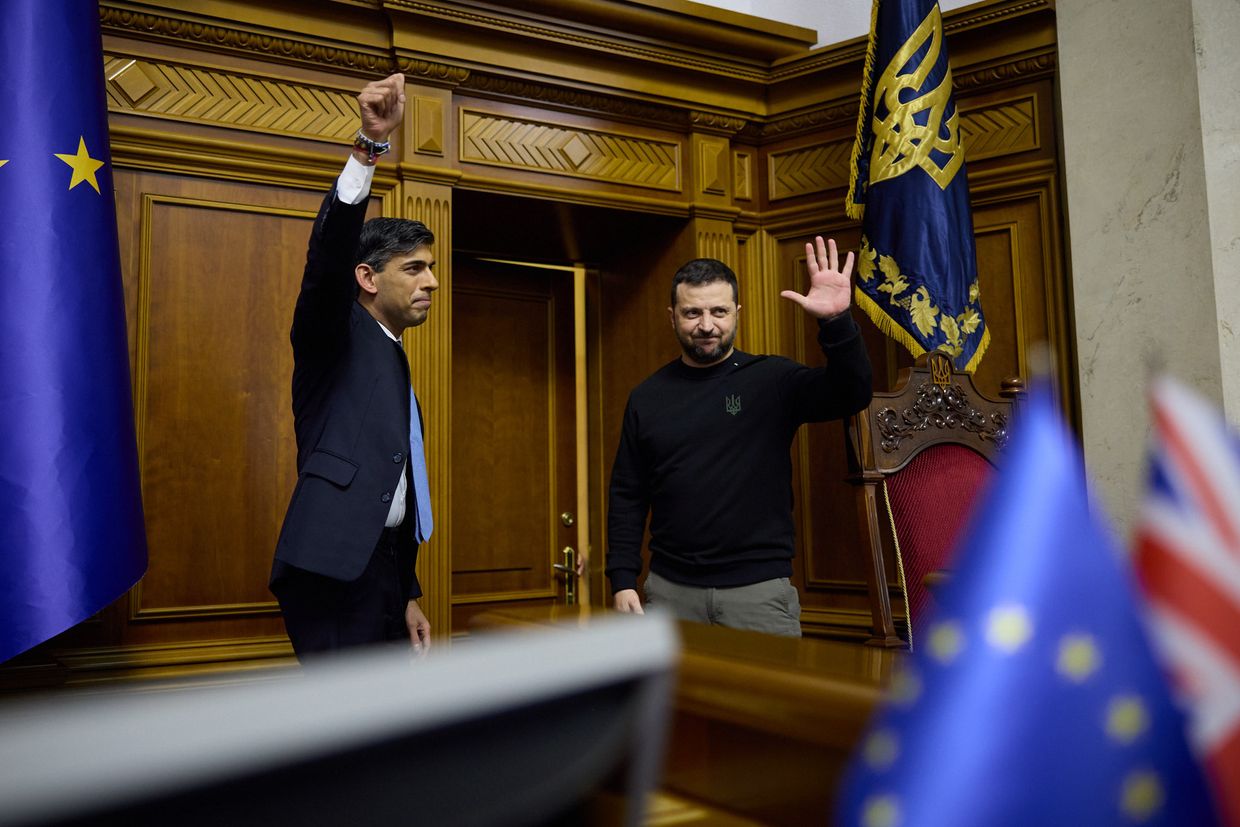NATO official warns of 'all-out war' with Russia within next 20 years.
Civilians in NATO countries should be prepared for the prospect of an all-out war with Russia in the next 20 years, said Lieutenant Admiral Rob Bauer, Chair of the NATO Military Committee, in comments to reporters on Jan.
18. NATO militaries have increased their capacity and preparedness since the beginning of Russia's full-scale invasion of Ukraine. While the prospect of the war escalating to an all-out clash between the alliance and Russia has so far been averted, there are concerns that the West has not truly accepted that it may still be a possibility.
Such a conflict would require the large-scale mobilization of civilians and the industrial base across the alliance, Bauer said. "We have to realize it's not a given that we are in peace. And that's why we (NATO) are preparing for a conflict with Russia," he added.
U.S. General Christopher Cavoli, the Supreme Allied Commander in Europe, said on Jan.
18 that NATO will conduct its most extensive military exercise in recent decades, involving about 90,000 troops. Despite this, there have been indications that the increase in defense production and general military preparedness has not been sufficient to shake off the complacency NATO has exhibited since the end of the Cold War.
As Russia has increasingly put its economy on a wartime footing, Europe has fallen short of even its pledges to deliver weapons to Ukraine, let alone prepare its own armies for war. Europe's supply of military equipment to Ukraine has already strained its capacity and stockpiles, creating concerns that it may take years to refill reserves, barring a full mobilization of industrial output. German Chancellor Olaf Scholz cautioned in January that Germany's military support for Ukraine is insufficient to compensate for the deficit from other EU countries.
Despite sanctions, Russia has also taken advantage of its alliances with Iran and North Korea, which have delivered large quantities of shells, drones, and other military equipment. North Korea has allegedly provided Russia with more than one million shells, more than the EU has delivered to Ukraine. "We need to be readier across the whole spectrum," Bauer said. "You have to have a system in place to find more people if it comes to war, whether it does or not.
Then you talk mobilization, reservists, or conscription." Some leaders have acknowledged the potential for danger, drawing historical parallels to the leadup to WWII, in which Europe was so hesitant to repeat the horrors of WWI that it appeased Nazi Germany, resulting in an even more destructive war. U.K.
Foreign Secretary David Cameron said on Jan.
18 that Russia's invasion of Ukraine has meant that the current reality is "like being a Foreign Minister or a leader in Europe in the 1930s." Recent comments by Swedish officials about the prospect of a future war sparked concern around the country, but Bauer said it was the right move. It is important to realize that "not everything is plannable and not everything is going to be hunky dory in the next 20 years," Bauer said.
Ukrainians criticize historic UK security agreement as weak, but encouraging
A new bilateral security agreement between Kyiv and London is getting mixed grades in Ukraine. Signed by President Volodymyr Zelensky and U.K. Prime Minister Rishi Sunak on Jan.
12, the 16-page document spells out both countries' intentions to work together on strengthening Ukraine's military, defe...
